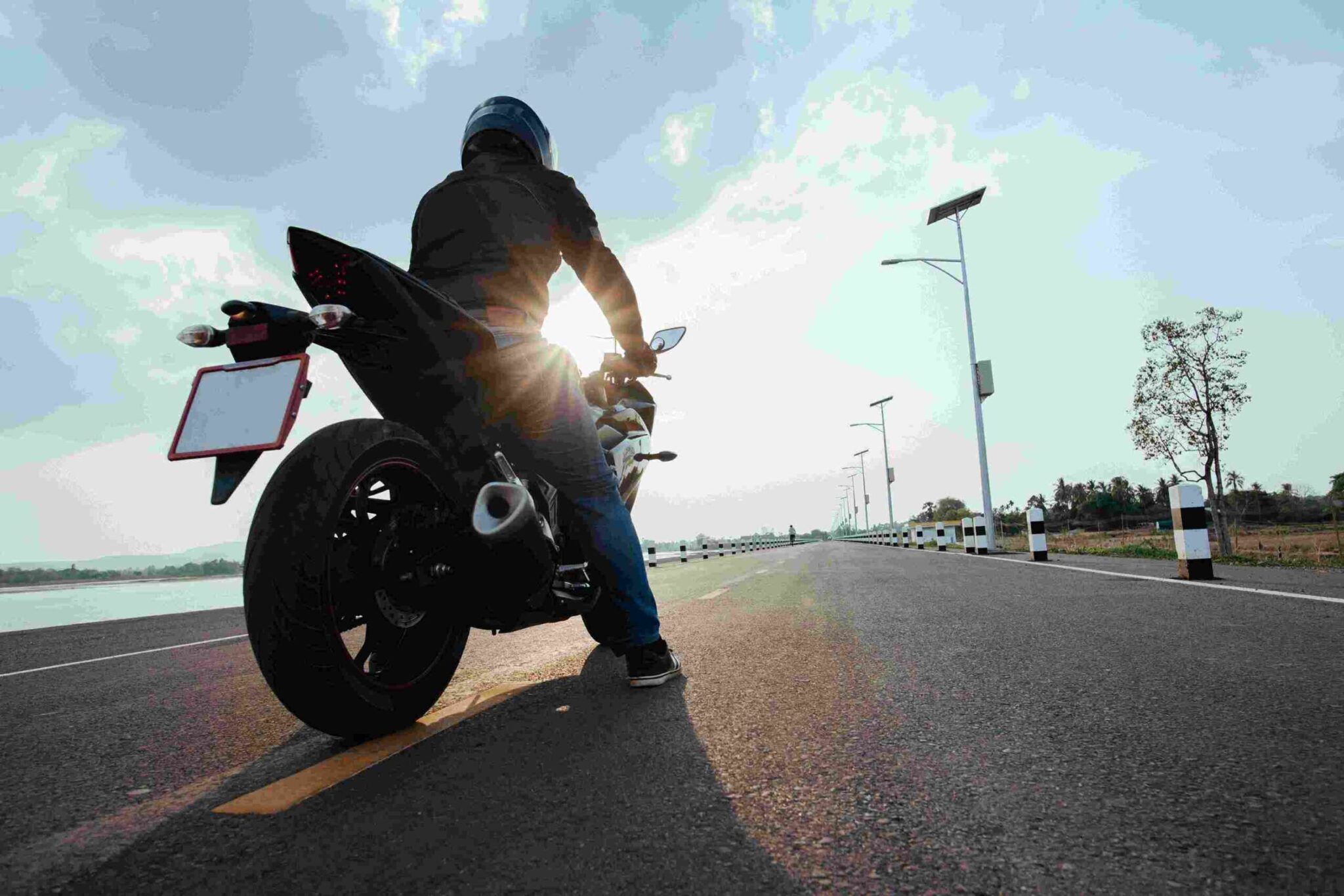Can you get a DUI on an electric bike? The answer, surprisingly, is often yes. The legal classification of electric bikes varies widely, and in many places, they are treated as motor vehicles, making DUI laws applicable. This means that riding an electric bike under the influence of alcohol or drugs can lead to serious consequences, including fines, license suspension, and even imprisonment.
The complexities of electric bike regulations and their impact on DUI laws highlight the need for clear understanding and responsible riding practices. As electric bikes become increasingly popular, it’s crucial to be aware of the legal ramifications of operating these vehicles while impaired.
Electric Bike Laws and Regulations

Navigating the legal landscape of electric bikes can be tricky, as laws vary significantly depending on the location. This is especially important when considering DUI laws, as they can differ based on how electric bikes are classified in each jurisdiction.
Electric Bike Classifications and DUI Laws
The classification of electric bikes as bicycles, motorcycles, or other vehicles has a direct impact on DUI laws. In many places, electric bikes are treated as bicycles, meaning DUI laws specific to motor vehicles may not apply. However, this is not always the case.
- In some jurisdictions, electric bikes with certain characteristics, such as high speeds or powerful motors, are classified as motorcycles or mopeds, subjecting them to stricter DUI laws.
- Other jurisdictions have specific laws addressing DUI on electric bikes, regardless of their classification.
Examples of Electric Bike and DUI Laws
- In the United States, the classification of electric bikes varies by state. Some states use the three-tiered classification system adopted by the League of American Bicyclists, which defines electric bikes based on their speed and motor power. Under this system, Class 1 and 2 e-bikes are generally considered bicycles, while Class 3 e-bikes may be subject to different regulations.
Other states have their own specific classifications.
- In the European Union, electric bikes are typically classified as bicycles, but there are regulations regarding their speed and motor power. Some countries may have additional specific rules regarding electric bikes and DUI.
- Australia has a similar classification system to the US, with different regulations for different types of electric bikes. DUI laws specific to electric bikes may also apply.
Defining “Operating Under the Influence” for Electric Bikes
The legal definition of “operating under the influence” or “driving while intoxicated” can be applied to electric bikes, especially in cases where the e-bike is classified as a motor vehicle.
In many jurisdictions, “operating under the influence” means that a person’s ability to operate a vehicle is impaired by alcohol or drugs, regardless of the vehicle’s classification.
Blood Alcohol Content (BAC) Limits: Can You Get A Dui On An Electric Bike

The legal blood alcohol content (BAC) limit for driving motor vehicles varies significantly depending on the region. Understanding these limits is crucial for electric bike riders, as their vehicles may fall under different regulations.
BAC Limits for Motor Vehicle Drivers
The standard BAC limit for driving motor vehicles is typically 0.08% in most countries. However, there are exceptions, and some jurisdictions may have stricter limits, such as 0.05% or even 0.02%.
- In the United States, the standard BAC limit for driving is 0.08%, but some states have stricter limits, such as Utah, which has a limit of 0.05%.
- In Canada, the standard BAC limit for driving is 0.08%, but some provinces have stricter limits, such as British Columbia, which has a limit of 0.05%.
- In the United Kingdom, the standard BAC limit for driving is 0.08%, but there are stricter limits for novice drivers, who have a limit of 0.02% for their first two years of driving.
BAC Limits for Electric Bike Riders
The application of BAC limits to electric bike riders varies significantly across jurisdictions. In some regions, electric bikes are classified as bicycles, and therefore, BAC limits do not apply. In other regions, electric bikes may be categorized as motor vehicles, subjecting riders to the same BAC limits as car drivers.
- In the United States, electric bikes are typically classified as bicycles, and BAC limits do not apply to riders. However, some states have specific regulations for electric bikes, and it’s essential to check the laws in your specific location.
- In Canada, electric bikes are typically classified as bicycles, and BAC limits do not apply to riders. However, some provinces have specific regulations for electric bikes, and it’s essential to check the laws in your specific location.
- In the United Kingdom, electric bikes are typically classified as bicycles, and BAC limits do not apply to riders. However, there are specific regulations for electric bikes with a power output exceeding 250 watts or a speed exceeding 15.5 mph.
Factors Influencing BAC Limits for Electric Bike Riders
Several factors can influence BAC limits for electric bike riders, including the type of electric bike and its speed capabilities.
- Type of Electric Bike: The classification of an electric bike as a bicycle or a motor vehicle can significantly impact BAC limits. For instance, in some regions, electric bikes with a motor exceeding a certain power output or speed limit may be considered motor vehicles, subjecting riders to BAC limits.
- Speed Capabilities: Electric bikes with higher speed capabilities may be subject to stricter regulations, including BAC limits. In some jurisdictions, electric bikes exceeding a certain speed limit are treated as motor vehicles, requiring riders to adhere to the same BAC limits as car drivers.
Consequences of DUI on an Electric Bike

A DUI conviction on an electric bike can have serious consequences, including fines, license suspension, and even imprisonment. While the severity of these consequences may be less than those for DUI convictions involving traditional motor vehicles, it’s crucial to understand the potential repercussions of operating an electric bike under the influence.
Potential Consequences of a DUI Conviction
The consequences of a DUI conviction on an electric bike can vary depending on the jurisdiction and the specific circumstances of the offense. However, some common consequences include:
- Fines: DUI convictions on electric bikes can result in substantial fines, ranging from hundreds to thousands of dollars.
- License Suspension: In some jurisdictions, a DUI conviction on an electric bike can lead to the suspension of your driver’s license, even if you weren’t driving a traditional motor vehicle at the time of the offense.
- Imprisonment: While less common, DUI convictions on electric bikes can result in jail time, especially if it’s a repeat offense or if the incident involved an accident or injury.
- Community Service: As part of the sentence, you may be required to perform community service, such as picking up trash or working at a local charity.
- Alcohol Education Programs: You may be required to attend alcohol education programs or undergo substance abuse evaluations.
- Ignition Interlock Devices: In some cases, you may be required to install an ignition interlock device in your vehicle, which prevents the vehicle from starting if you have been drinking.
Comparison to DUI Convictions for Traditional Motor Vehicles, Can you get a dui on an electric bike
While the consequences of a DUI conviction on an electric bike may be less severe than those for traditional motor vehicles, they are still serious. In many jurisdictions, the penalties for DUI on an electric bike are similar to those for DUI on a motorcycle.
The severity of the consequences will depend on factors such as your BAC level, the presence of any accidents or injuries, and your prior driving record.
Impact on Insurance Premiums and Driving Privileges
A DUI conviction on an electric bike can significantly impact your insurance premiums and driving privileges. Insurance companies may increase your premiums, or even refuse to renew your policy. Additionally, a DUI conviction can affect your ability to obtain a driver’s license in the future.
Consequences in Different Jurisdictions
The following table provides a comparison of potential consequences of DUI on an electric bike in different jurisdictions:
| Jurisdiction | Fines | License Suspension | Imprisonment | Other Consequences |
|---|---|---|---|---|
| California | $390 – $1,000 | Up to 6 months | Up to 6 months | Alcohol education programs, community service |
| Texas | $200 – $2,000 | Up to 1 year | Up to 180 days | Ignition interlock devices, alcohol education programs |
| Florida | $500 – $1,000 | Up to 1 year | Up to 1 year | Community service, alcohol education programs |
| New York | $300 – $500 | Up to 6 months | Up to 1 year | Alcohol education programs, community service |
Navigating the legal landscape of electric bikes and DUI requires careful consideration of local laws and regulations. The potential consequences of operating an electric bike under the influence are significant, emphasizing the importance of responsible behavior and prioritizing safety. Whether classified as a bicycle or a motor vehicle, the principle remains the same: responsible riding is essential for the well-being of riders, pedestrians, and the community at large.
FAQ Resource
Can I ride my electric bike after a few drinks?
It depends on the legal classification of your electric bike in your jurisdiction and your blood alcohol content. It’s best to err on the side of caution and avoid alcohol consumption before riding an electric bike.
What are the specific penalties for DUI on an electric bike in my state?
Penalties vary by state. Consult your local laws or a legal professional for specific information.
Are electric bikes considered motor vehicles in all states?
No. Electric bike classifications differ by state. Some states consider them bicycles, while others classify them as motor vehicles.
How do I know if my electric bike is classified as a motor vehicle?
Refer to your electric bike’s documentation and check your state’s motor vehicle laws.